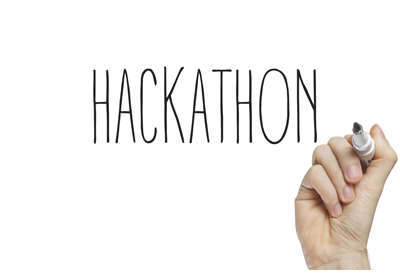
Hackathons
Hackathons sometimes get a bad rap just because of the name. Hacking symbolizes security breaches, data loss, and other negative consequences. Hacking can also mean a slick or cool way to solve a computer programming problem with code. Hacking can also mean a creative way to accomplish something or solve a problem. But at some point the term became synonymous with breaking into computers.
Hackathons as for the most part are coding events. They are usually multi-day events. They may focus on a particular problem, tool, or platform. That is not to say that non-programmers cannot participate and contribute. For tech companies, hosting internal hackathons has become a way to generate new product features or develop evolutions in products and the way they are used.

Hackathons have become a creative tool. They have the elements of a brainstorming session but with a "hands-on" component. It is not just throwing an idea out there. It is running with the idea and creating something you can "pitch" at the end of the event. No one expects a finished product. In a 24-36 hour hackathon you may go through several iterations of you idea. That is the whole premise. Teams of people start with an idea and work through it with sample code or prototypes to see if it will work. Maybe the idea is tweaked or maybe it is discarded and a new concept is developed.
The idea of corporate hackathons is being extended into other arenas. It does not have to be about computer code or a mobile app. Why not apply the hackathon approach to customer service processes or product development cycles?
Hackathons are a competition. There are prizes for the winners of events. The is even competitive collegiate hackathon series sponsored by Major League Hacking. They have seasons and conferences where different colleges and university teams compete. It is like the NCAA of collegiate hackathons.
There are a couple of other interesting benefits to hackathons. First, they can be a source for recruiting. Over a weekend hackathon recruiters get an opportunity to see coders and other participants apply their skills. But more importantly, they get to see how they work in a team under pressure of a deadline. Hardware and software companies often sponsor hackathons and send technical specialists to help teams use their products. They benefit in two ways. The participants get hands-on experience using their product and they are potentially proponents of those products when they get into the workforce.
Hackathons benefit the participants, recruiters, and hardware / software vendors. They also provide a unique way of moving conceptual ideas toward a functional, physical product. I look for the hackathon movement to grow and become even more common internally within organizations.
